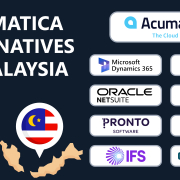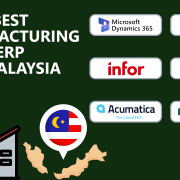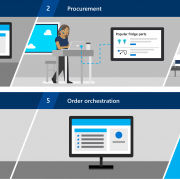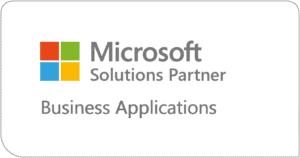Unveiling the Top 5 ERP Systems for SMEs in 2024
In the dynamic landscape of business management, the right Enterprise Resource Planning (ERP) system can be a game-changer for Small and Medium-sized Enterprises (SMEs). As we navigate through 2024, the demand for efficient, scalable, and feature-rich ERP solutions has never been higher. In this comprehensive guide, we present the 5 Best ERP Systems tailored specifically for SMEs, empowering businesses to thrive in the digital era.
Table of Contents
1. Microsoft Dynamics 365
A Unified Ecosystem for SME Success
In the pursuit of a holistic ERP solution, Microsoft Dynamics 365 emerges as a frontrunner. This comprehensive platform integrates various business applications, fostering a unified ecosystem. SMEs benefit from the synergy of Dynamics 365, where modules like finance, sales, and operations seamlessly communicate, providing real-time insights crucial for informed decision-making.
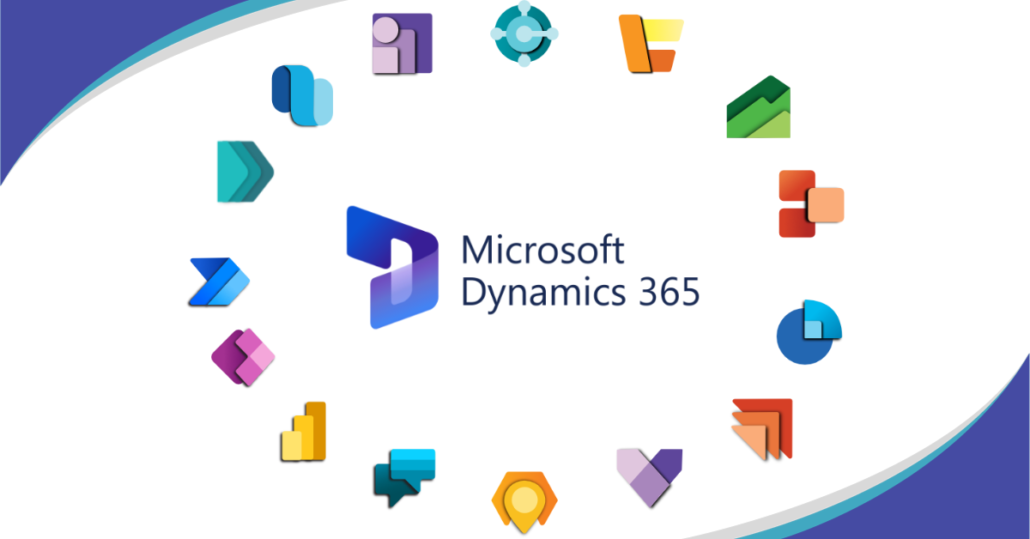
3 main advantages of Microsoft Dynamics 365:
Begin Gradually: Utilizing Dynamics 365, initiate your journey on a modest scale by implementing the essential financial management module with just a single full user. As your company expands or gains greater confidence in Dynamics 365, seamlessly incorporate additional modules to meet evolving needs.
Microsoft Look and Feel: Embraced by numerous organizations, Dynamics 365 stands out as a user-friendly solution, owing to its seamless integration with the distinctive look and feel of Microsoft solutions. Mirroring the familiar style found in Microsoft 365 applications, this alignment simplifies adoption for users and organizations alike.
Other Microsoft Products Integrations: Dynamics 365 effortlessly weaves into the fabric of various Microsoft products, including Microsoft 365 and Power Platform. This integration empowers you to harness the complete spectrum of capabilities within the expansive Microsoft ecosystem.
2. SAP Business One
Transforming SMEs with Integrated Efficiency
SAP Business One stands as a stalwart in the ERP realm, offering an integrated suite that covers everything from finance to customer relationship management. This ERP solution is renowned for its scalability, enabling SMEs to seamlessly expand without compromising operational efficiency. With features like real-time analytics and robust reporting tools, SAP Business One ensures that businesses stay ahead in the competitive landscape.
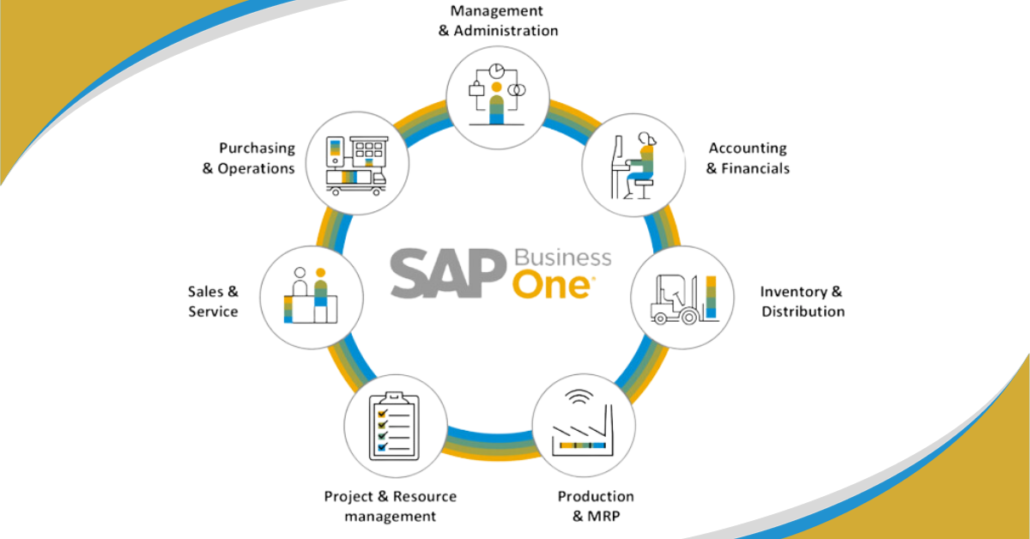
3 main advantages of SAP Business One:
All-in-one ERP Solution: SAP Business One stands as an inclusive ERP solution curated specifically for SMBs. It seamlessly integrates modules encompassing financial management, supply chain logistics, CRM, human resources management, and a host of other functionalities, presenting a comprehensive toolkit for small and medium-sized enterprises.
Mature Product: Embraced globally, SAP Business One stands as a mature product trusted by companies worldwide. Infused with cutting-edge technologies, it emerges as a proven and dependable solution for businesses not only globally but also making a significant impact in the vibrant business landscape of Malaysia.
Smooth Implementation: Businesses benefit from a relatively quick and efficient deployment process with this solution. Streamlined SAP Business One projects, characterized by simplicity, can be successfully executed in a mere 1-2 month timeframe, ensuring a prompt integration for enhanced operational efficiency.
3. Oracle NetSuite
Elevating Business Scalability and Agility
Oracle NetSuite takes the spotlight as an ERP solution that marries flexibility with functionality. Catering to the unique needs of SMEs, it provides a cloud-based platform that facilitates seamless collaboration across different departments. From financial management to supply chain optimization, NetSuite empowers SMEs with the agility needed to adapt to ever-evolving market conditions.
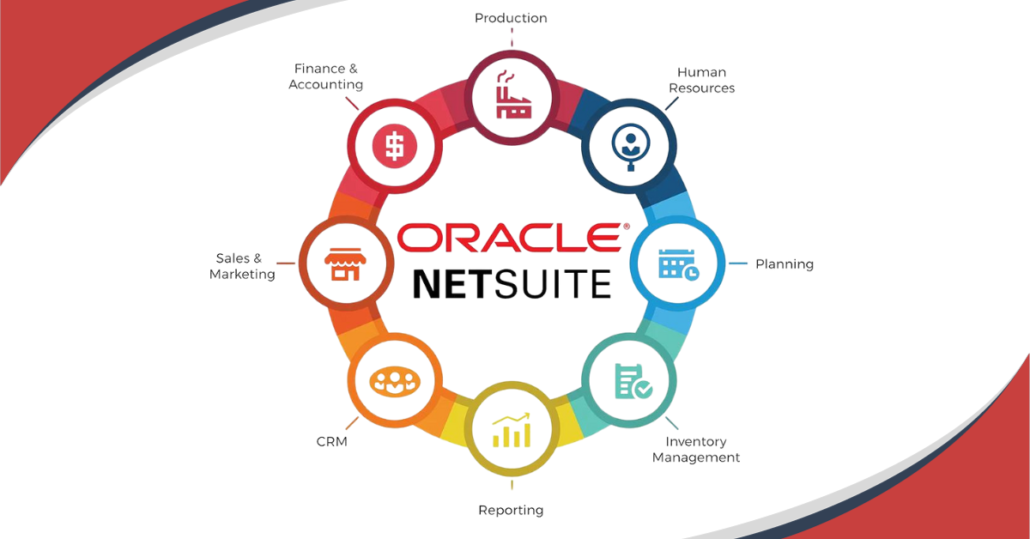
3 main advantages of Oracle NetSuite:
Native Cloud: Demonstrating an exceptional level of sophistication in cloud technology, this ERP solution has attained an advanced and mature status by being purpose-built as a native cloud platform.
Uniformity: NetSuite boasts a large amount of exemplary standardized workflows and business processes, empowering small, rapidly expanding enterprises to swiftly transition from reliance on spreadsheets and basic accounting solutions. This standardized approach accelerates scalability, fostering efficiency in operational growth.
Easy-to-Use Interface: NetSuite presents an interface designed for user-friendliness, enhancing the ease of learning and adaptation for organizations. This streamlined approach accelerates the return on investment (ROI), outpacing the timelines associated with more intricate solutions.
4. Infor CloudSuite
Tailored Solutions for SME Niches
Infor CloudSuite specializes in tailoring ERP solutions to the unique requirements of SMEs. This system is designed to be flexible, accommodating industry-specific needs with precision. From manufacturing to retail, Infor CloudSuite offers modules that can be customized, ensuring that businesses receive a solution perfectly aligned with their operational nuances.
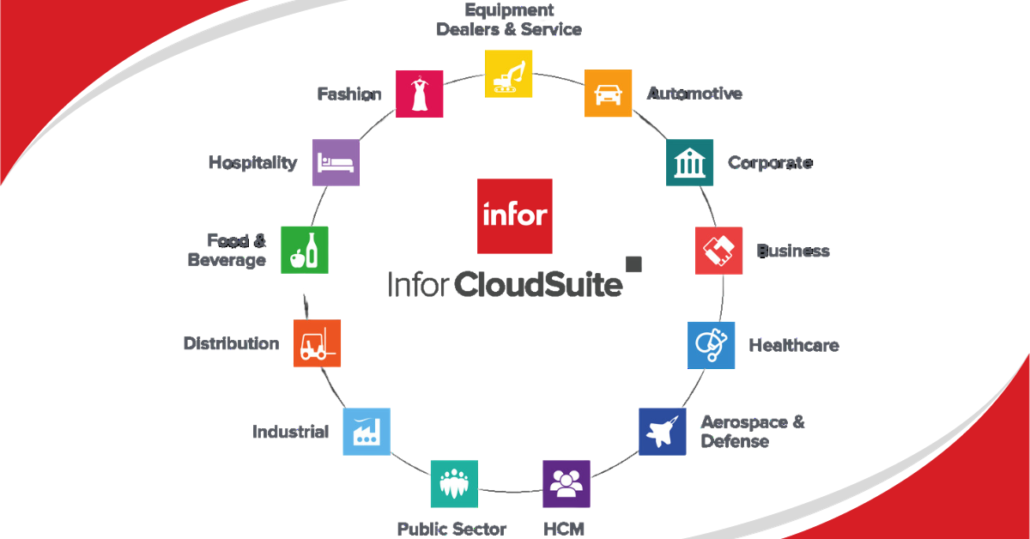
3 main advantages of Infor CloudSuite:
Fortified Security Infrastructure: Infor CloudSuite solutions are strategically deployed within data centers boasting robust operational and physical security measures, meticulously aligned with industry standards. Leveraging a multi-tiered monitoring approach, Infor swiftly identifies, analyzes, and takes proactive measures to address any issues that may arise, ensuring a steadfast and resilient security posture.
Efficiency Through AWS Synergy: Infor CloudSuite solutions capitalize on a rich array of over 50 services offered by AWS, enhancing compute performance, data persistence, networking, caching, monitoring, and incident response. This strategic utilization ensures an optimized and finely-tuned ecosystem that propels operational excellence within the Infor CloudSuite framework.
Dynamic Scaling Excellence: Within Infor CloudSuite, the integration with AWS goes beyond the ordinary, tapping into features like auto-scaling to deliver an exceptionally scalable on-demand performance. Proactively aligning with usage patterns and key performance indicators, capacity is seamlessly added or removed, ensuring a dynamic scaling approach that optimally adapts to evolving business needs.
5. Epicor ERP
Empowering Growth with Industry-Specific Solutions
Epicor ERP positions itself as an ERP solution that understands the diverse needs of SMEs across different industries. With a focus on industry-specific functionality, Epicor ERP ensures that businesses receive not just a generic system but a tailored solution that enhances efficiency and drives growth.
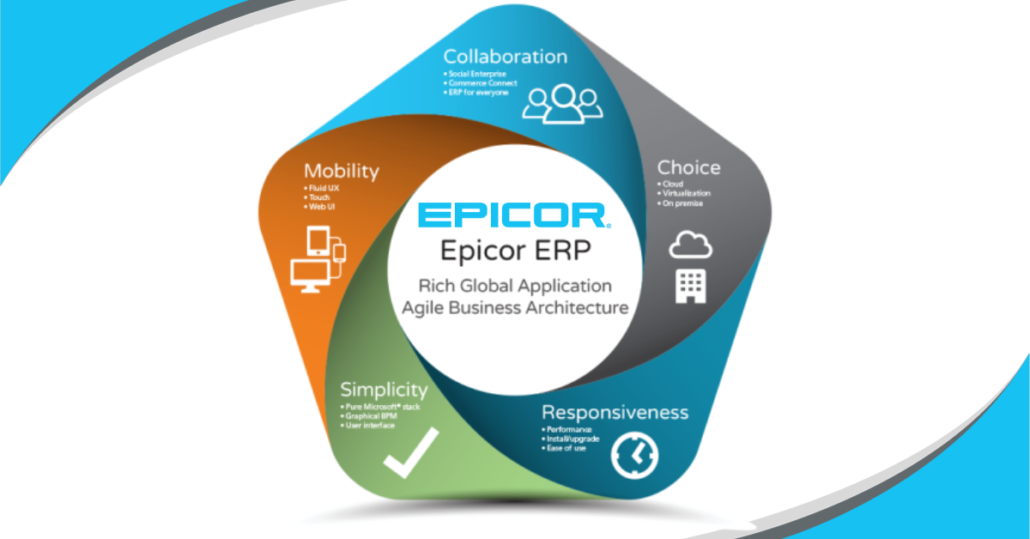
3 main advantages of Epicor ERP:
Cost-Efficient: Epicor Kinetic stands out by offering an implementation process that reduces financial investment compared to other ERP solutions. This approach ensures exceptional value for customers, allowing them to swiftly realize tangible benefits sooner rather than later in their ERP journey.
SME-Focused: Epicor Kinetic is meticulously crafted with a primary focus on nurturing the needs of small to medium-sized businesses (SMBs), tailoring its features to fuel the growth and success of enterprises within this dynamic sector.
Low Code Platform: Epicor Kinetic facilitates seamless customization without compromising the integrity of the latest updates or product functionalities. This unique feature offers you the perfect balance – the flexibility to personalize without any compromise on the core functionality of the product.
Choosing The Right ERP System for Your SME
Choosing the best ERP system for your SME is a decision that warrants careful consideration. Each of the mentioned systems has its unique strengths, catering to different business needs. To ensure you make an informed choice, evaluate your specific requirements, scalability plans, and industry nuances.
Key Considerations:
1. Scalability
Consider the future growth of your SME. Opt for an ERP system that can scale seamlessly as your business expands.
2. User-Friendly Interface
An intuitive interface ensures that your team can adapt quickly, reducing training time and increasing overall productivity.
3. Customization Options
Look for ERP solutions that offer customization options to tailor the system to your industry’s specific needs.
4. Integration Capabilities
Choose an ERP system that easily integrates with existing software, preventing disruptions to your workflow.
5. Cost-Effectiveness
Evaluate the total cost of ownership, considering not just upfront costs but also ongoing maintenance and support expenses.
Conclusion
In the competitive landscape of SMEs, the right ERP system can be the catalyst for growth and efficiency. The 5 Best ERP Systems for SMEs in 2024 presented here offer a diverse range of options, each excelling in specific areas. Whether it’s the unified ecosystem of Microsoft Dynamics 365, the integrated efficiency of SAP Business One, the scalability of Oracle NetSuite, the tailored solutions of Infor CloudSuite, or the industry-specific focus of Epicor ERP – the choice ultimately depends on the unique needs of your SME.
Interested to learn more about ERP System?
Book a FREE consultation session today!
*Our representative will contact you within 24 hours after submitting the form, this excludes weekends and public holidays.


